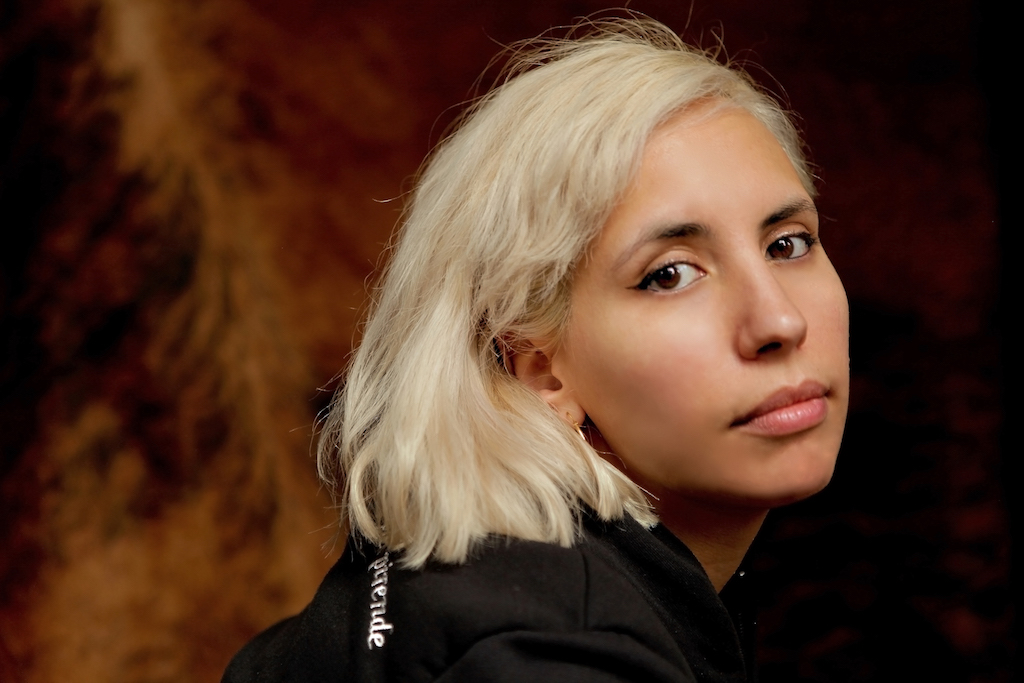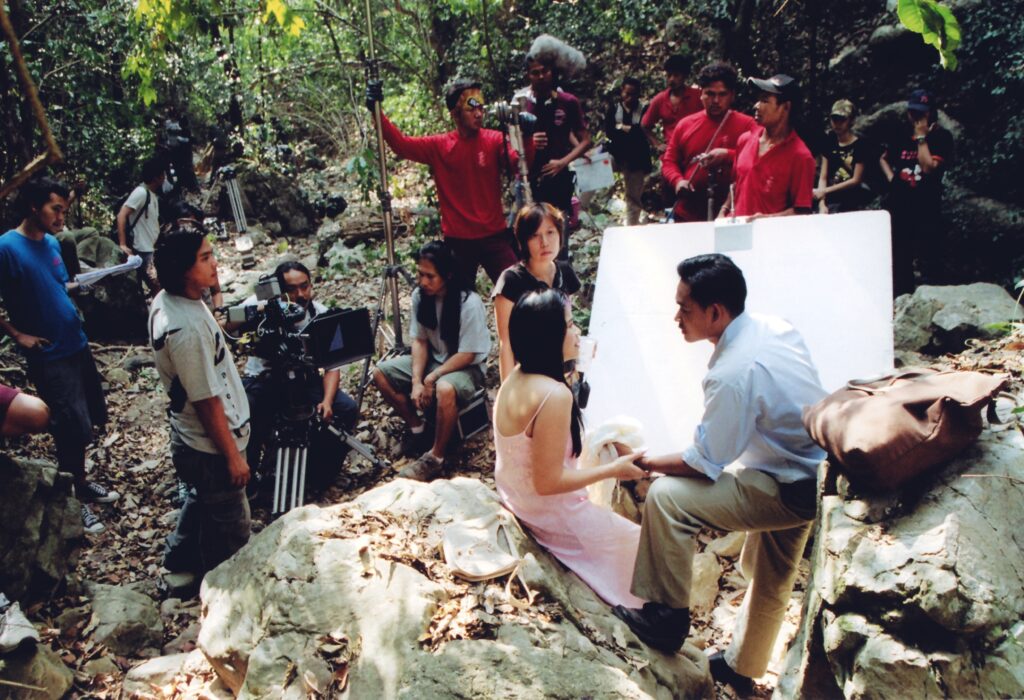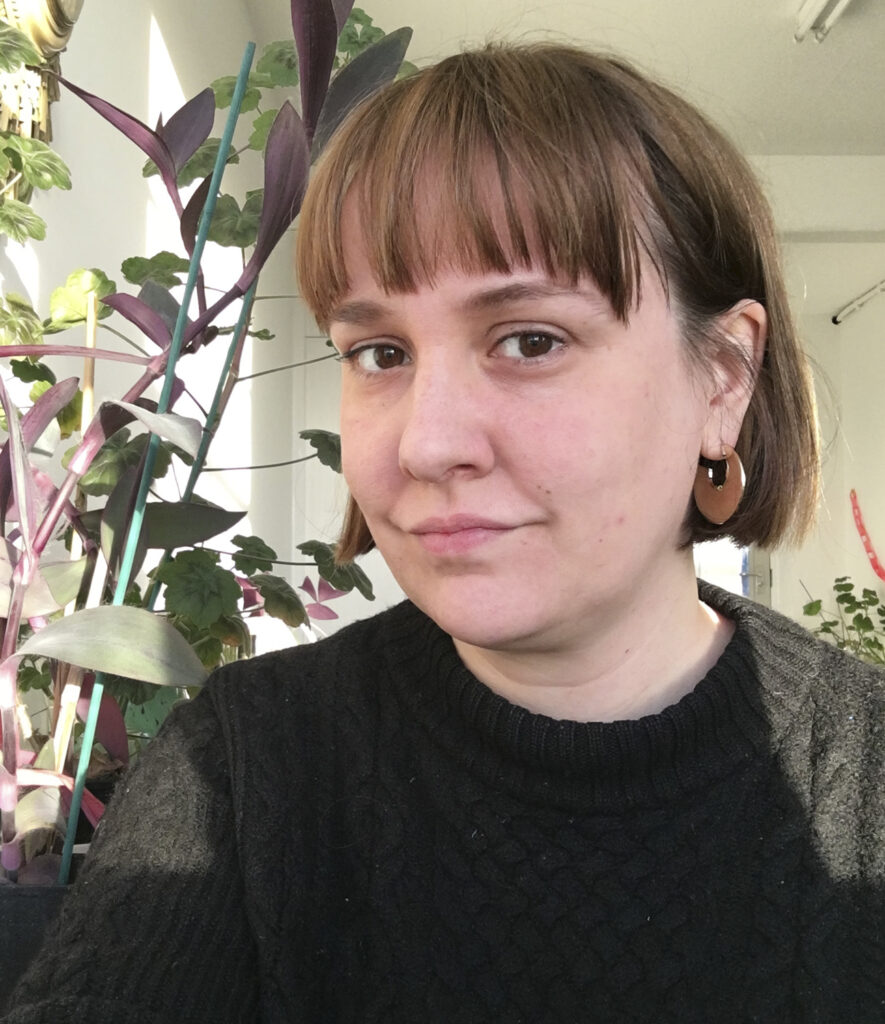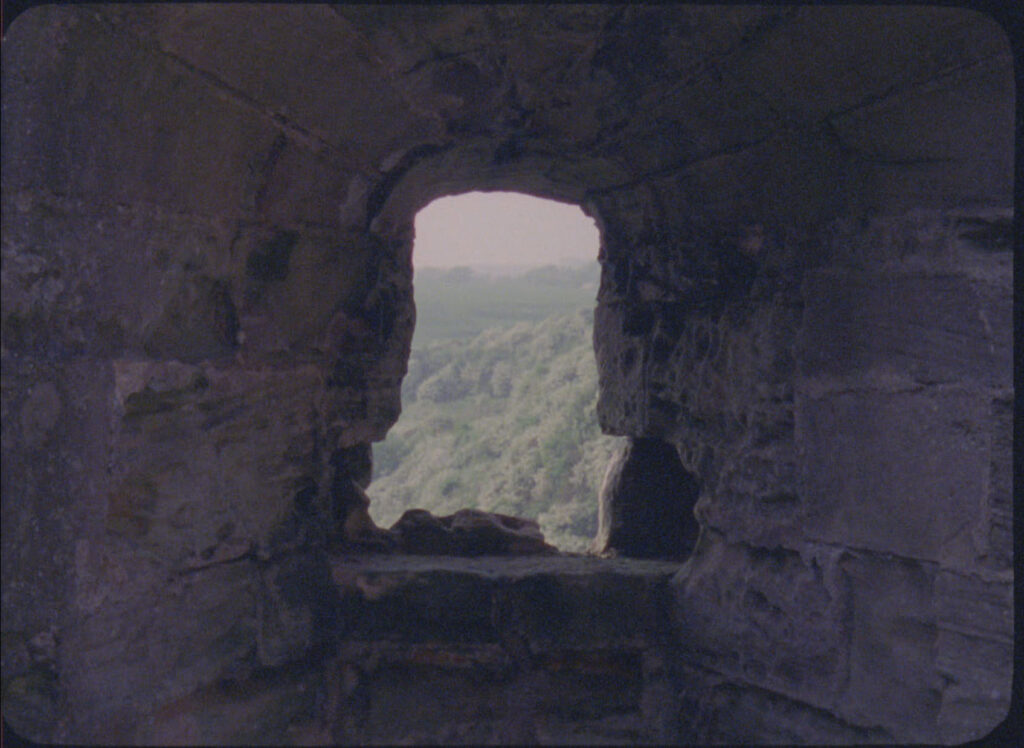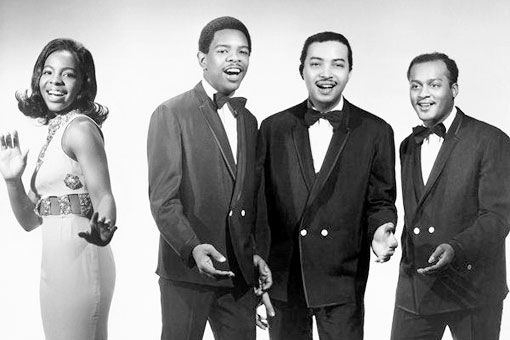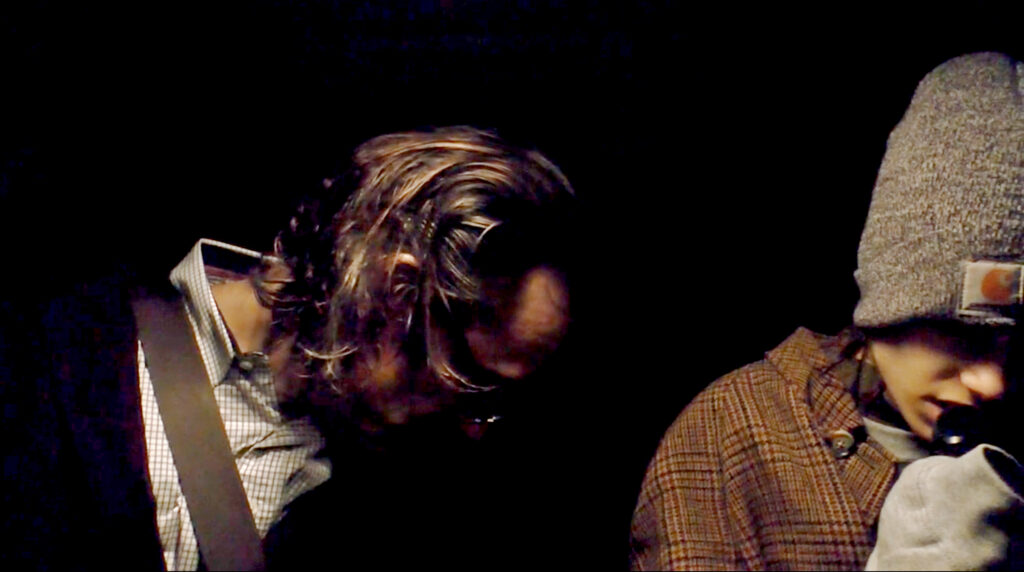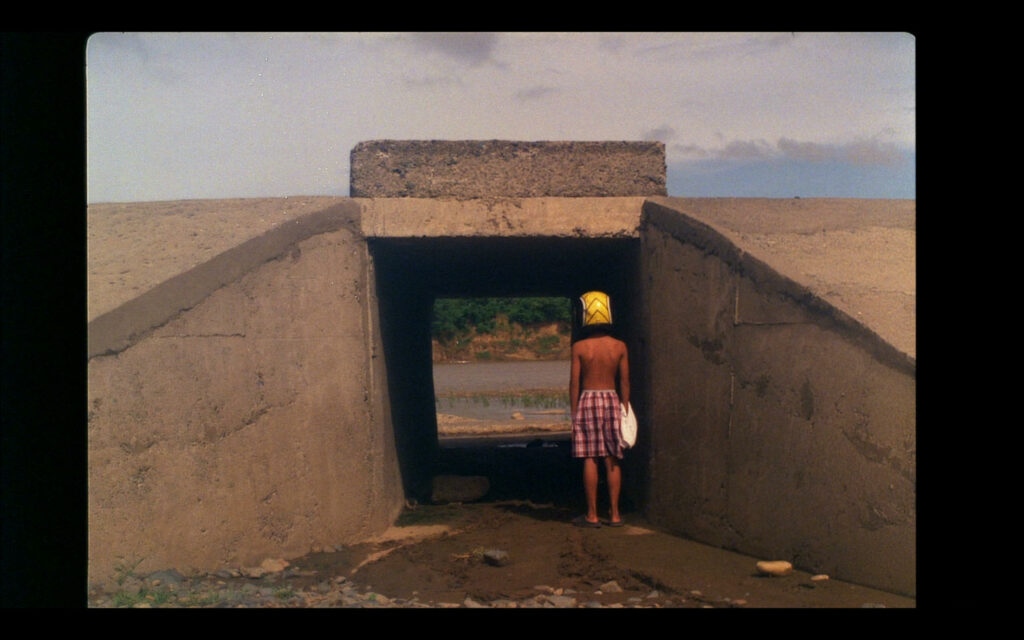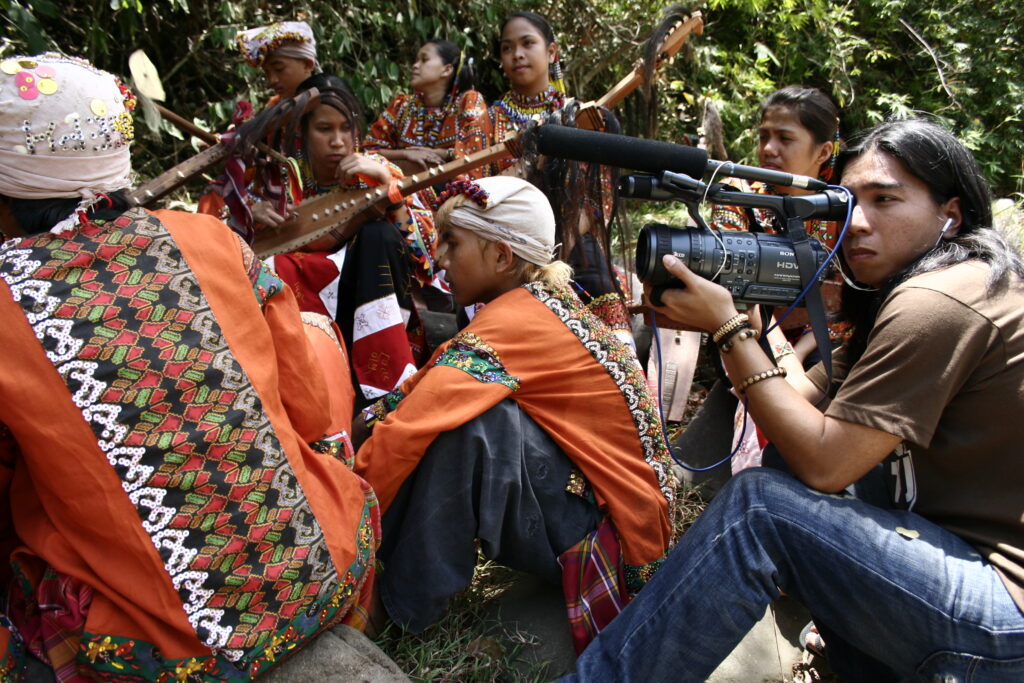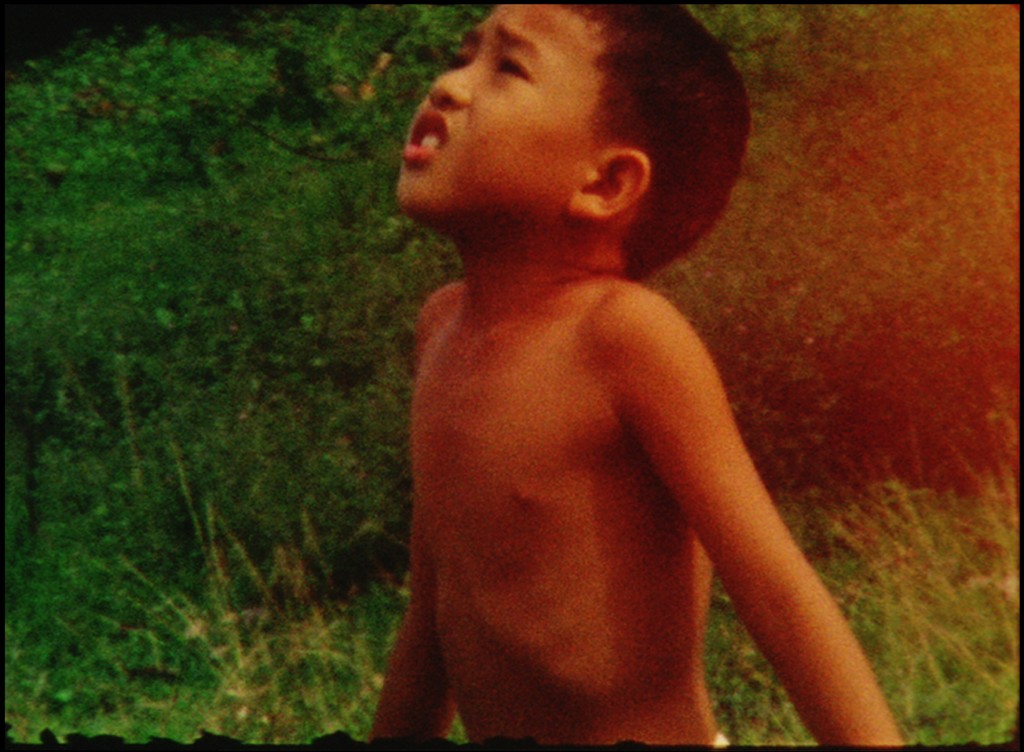Sophia Al-Maria discusses her diverse practice—particularly the series of moving image works shown in the ‘Temporal Vertigo’ retrospective screening and The Magical State exhibition in The Magazine—with BFMAF associate programmer Herb Shellenberger and 2018 seminar leader Taylor Le Melle. Working at the intersection of cinema and contemporary art, Al-Maria’s practice occupies a singular space within the field of artists’ moving image.
Programmes
A couple escape from their families and flee deep into the jungle. At nightfall, a song illustrates the innocence of their love and their search for happiness. Palme d’Or winning filmmaker Apitchatpong Weerasethakul invited fellow Thai filmmaker Pimpaka Towira to shoot a 35mm film in the forest while he observed the production though his digital camera. While Worldly Desires is dedicated to Weerasethakul’s memories of filmmaking in the jungle from 2001–05, it is also a story of forbidden love and desire, loaded with poetry, metaphor and mystery.
Berwick Visual Arts and BFMAF Artist in Residence Lucy Clout discusses Solvent Magazine, her new body of work produced in Berwick and exhibited in The Gymnasium, with Cubitt Curatorial Fellow and Cinenova working group member Louise Shelley and 2018 seminar leader Taylor Le Melle.
Berwick Film & Media Arts Festival presents the premiere of Enceindre, a new commission and first collaboration between artist filmmaker Luke Fowler and acclaimed sound recordist Chris Watson. Enceindre is a study in film and sound of two 16th century fortified cities: Berwick in the North-East of England and Pamplona in the Navarre region of the North of Spain.
Northern soul, R&B and club classics with DJs Carl Hudson and Michael Elliot. Free admission, all welcome.
The dirty beats and lo-fi stream of consciousness father and daughter duo Yeah You! (Elvin Brandhi & Mykl Jaxn) meet the left handed melodic messthetics of Glasgow’s finest: Vital Idles. Plus karaoke. All welcome!
Join Berwick Visual Arts Artist in Residence Lucy Clout to celebrate the opening of her BFMAF 2018 exhibition, Solvent Magazine. Refreshments and merriment aplenty.
‘Lukas, in the middle of the film, the actress will pay a visit. You’ll fall in love with her. And you’ll understand your father. I’ll become your memory. I haven’t shown you the middle yet’. Thus begins John Torres’s latest dream of a documentary, a highly experimental, gloriously free-form coming-of-age story. Shortly after the arrival of a film crew that throws his tiny, usually quiet village into a frenzy of commotion, Lukas’s father, Mang Basilio, announces that he is a ‘tikbalang’, the half-horse, half-man of Filipino folklore. When Mang Basilio disappears, the awkward, baffled Lukas sets out on a journey of self-discovery that will include a ‘river of forgetting’, invisible voices and a hallucinatory blurring of reality and fantasy. Torres has already carved out an idiosyncratic niche for himself in the thriving world of documentary-fiction hybrids, and this is his most personal and expansive work to date. — Film Society of Lincoln Center
Q&A with filmmaker John Torres
Years When I Was a Child Outside is a meta-film following Torres’ perspective as the son of best- selling self-help author Rodolfo Torres, whose instructional books and tapes made in early 1980s Philippines aimed to ‘help raise brighter children’. Upon learning that his father bore illegitimate children, the narrator decides to run away. The film is not only a chronicle of stories through foreign regions but also a probing letter from outside circles; an honest account of illegitimate views from uneven terrain; and a narrative-driven exploration of the nooks and peripheries of the body, geography and weather. As the journey progresses, the film increasingly traverses the countries of revelation, film, and heart—to where all journeys are meant to end with.
Q&A with filmmaker John Torres
America has ‘liberated’ the Philippines and the islands have just been proclaimed a new republic.
Every morning, at the crack of dawn, Father and Mother stretch Julio, pulling his limbs in opposite directions. They make him drink a concoction made from the liver of codfish, believed to stimulate growth in children. He stands in the blazing heat of the sun.
The family swells in size to six children. Father hunts for food while Mother tends to domestic duties, leaving Julio and his siblings alone, exposed to their lush natural environs. Soon enough, the youngest two are taken away and distributed amongst the two aunts without offspring of their own.
Big Boy chronicles the growth of a family, the myths of progress that consume them and the violence not just in war and colonization, but also that which is inherent in coming into being—for a boy, a man and a nation.
Q&A with filmmaker Shireen Seno


